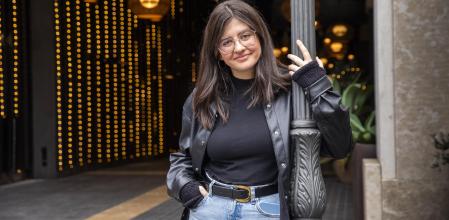
Author Julie Gilbert Discusses the Writing of Her New Book ‘Giant Love’
Julie Gilbert Today, we delve into the enduring relevance of the themes explored by Pulitzer Prize -winning author Edna Ferber
It’s easy to feel happy for a friend who has suddenly, seemingly irrevocably, fallen in love. It’s just as easy to wonder, privately, if they might, one day, fall out of it. Love stories, like rhymes, are initially generative. Both begin with the promise of infinite possibility: the couple–and the couplet–could go anywhere! But anywhere always winds up being somewhere, and that somewhere is very often a dead end. Couplets, Maggie Millner’s rhapsodic debut, is officially described as a novel in verse, but the poems that comprise it constantly buck against their generic container. Some are in prose, others are in rhyme and meter, and all are spoken by a young woman straddling two relationships and a shifting sense of self. Affair narratives are all about reversed chronologies: they end where love begins. But when the speaker leaves her long-term boyfriend for a first-time girlfriend, her timelines get all mixed up: she becomes a “conduit / between them: a conversation they conducted / with my mouth.” Couplets are preoccupied with triangulations. The speaker is intensely jealous of her new girlfriend’s other girlfriend, a novelist who every other weekend also has a “tryst” every day with a married hedge fund manager and his lover, who is a novelist. When he ejaculates into one of the novelists, the other pretends she is a voyeur, peering in on her competitor, the hedge fund manager’s wife. Meanwhile, the protagonist, a poet, finds that her […] Maggie Millner. Photograph by Sarah Wagner Miller.
Click here to view original web page at Three Is a More Interesting Number than Two: A Conversation with Maggie Millner
© 2023, wcadmin. All rights reserved, Writers Critique, LLC Unless otherwise noted, all posts remain copyright of their respective authors.

Julie Gilbert Today, we delve into the enduring relevance of the themes explored by Pulitzer Prize -winning author Edna Ferber

The Mallorcan Joana Marcús is a young bestseller in Spain and America, writer of young adult novels with a romantic


